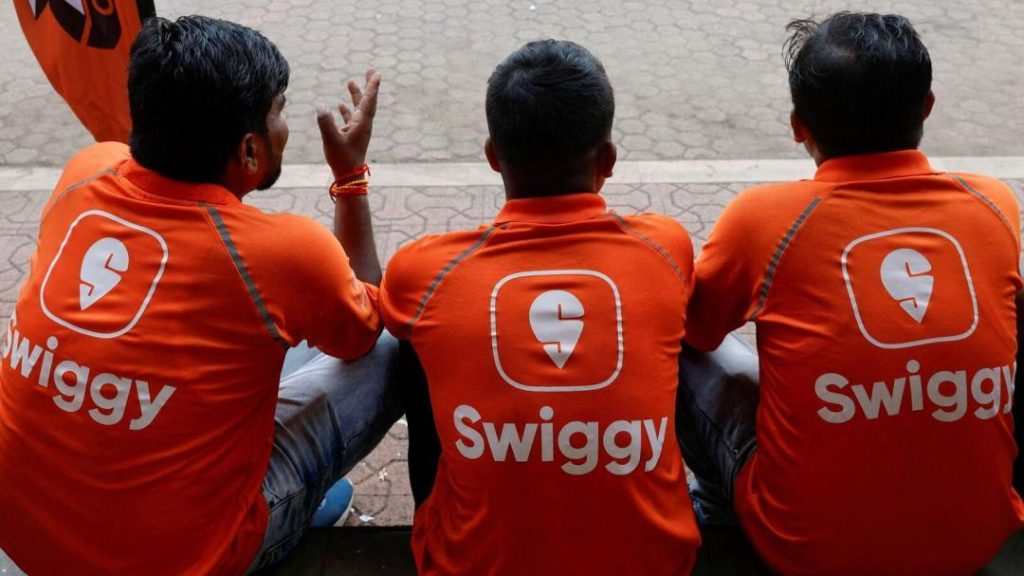
Swiggy Faces ₹158 Crore Tax Demand Over Cancellation Fees
The e-commerce industry in India has been witnessing a surge in growth, with food delivery platforms like Swiggy leading the charge. However, with great success comes great responsibility, and Swiggy has recently found itself in a sticky situation with the tax authorities. The Bengaluru-based company has been slapped with a massive ₹158 crore tax demand for the financial year 2021-22, allegedly for violating tax provisions related to cancellation charges paid to merchants.
According to a report by Ascendants, the tax demand was issued by the Income Tax Department (ITD) on the grounds that Swiggy failed to deposit the cancellation fees paid to its merchants in the correct manner. The company has, however, refuted the claim, stating that the demand stems from a misunderstanding of tax provisions and plans to appeal the decision.
So, what exactly are cancellation fees, and why are they a bone of contention between Swiggy and the ITD? Let’s dive deeper into the issue and explore the implications it may have on the e-commerce industry as a whole.
What are Cancellation Fees?
Cancellation fees are charges levied by e-commerce platforms like Swiggy on customers when they cancel their orders after the merchant has already started processing the food. These fees are intended to compensate the merchant for the time and effort invested in preparing the order, which ultimately goes to waste.
In the case of Swiggy, the company claims that it collects a cancellation fee from customers and then passes on a portion of it to the merchants as a service fee. The remaining amount is retained by Swiggy as its own. However, the ITD has allegedly found that Swiggy has not been depositing the cancellation fees paid to merchants in the correct manner, thereby violating tax provisions.
The Tax Demand
The tax demand of ₹158 crore is a significant sum, and it’s not surprising that Swiggy has decided to appeal the decision. The company claims that the demand is unfair and that it has been following the correct tax procedures all along. In a statement, Swiggy said, “We are committed to complying with all applicable tax laws and regulations. We believe that the assessment is incorrect and we will appeal against it.”
The ITD, on the other hand, has maintained that Swiggy’s failure to deposit the cancellation fees in the correct manner constitutes an “undisclosed income” and has therefore issued the tax demand. The department has also alleged that Swiggy has not provided sufficient evidence to support its claim that the cancellation fees are service fees and not revenue.
Implications for the E-commerce Industry
The Swiggy tax demand has sent shockwaves through the e-commerce industry, with experts warning that it may set a precedent for how cancellation fees are taxed in the evolving digital economy. If Swiggy is found liable for the tax demand, it could lead to a re-evaluation of the tax treatment of cancellation fees across the industry.
“This case may have far-reaching implications for the e-commerce industry,” said Suresh Kumar, a tax expert. “If Swiggy is found guilty, it could lead to a re-examination of the tax treatment of cancellation fees, which could impact the revenue of e-commerce companies.”
The case also highlights the need for e-commerce companies to ensure that they are complying with all applicable tax laws and regulations. As the industry continues to grow, it’s essential that companies like Swiggy maintain transparency and accountability in their financial dealings.
Conclusion
The Swiggy tax demand is a significant development in the e-commerce industry, and its implications will be closely watched by stakeholders. While Swiggy plans to appeal the decision, the case may still set a precedent for how cancellation fees are taxed in the future. As the industry continues to evolve, it’s essential that companies like Swiggy prioritize transparency and compliance to avoid similar tax disputes in the future.
Source:
https://ascendants.in/industry_events/swiggy-rs-158-crore-tax-demand/



